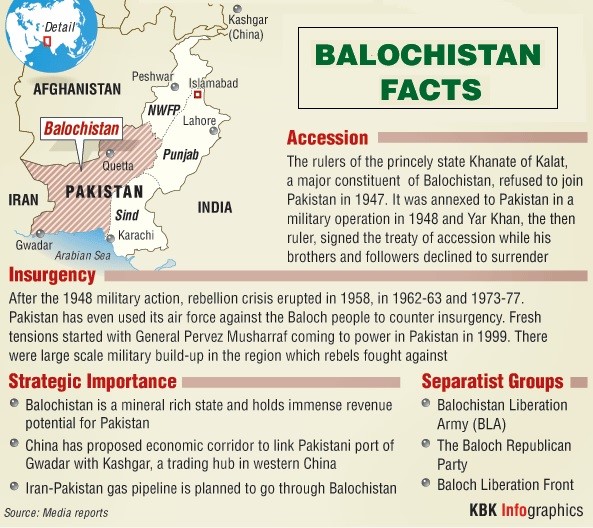7667766266
enquiry@shankarias.in
The Majeed Brigade of the separatist group Baloch Liberation Army (BLA) has claimed responsibility for recent attack on a complex outside Pakistan’s strategic Gwadar Port.
Balochistan, in Pakistan’s southwest, is the country’s largest and most sparsely populated province.
Amnesty International report from 2011 highlighted the use of 'kill and dump' strategies by Pakistani forces

|
Gwadar port |
|